Eric Swanson
Nov 2
7 min read

